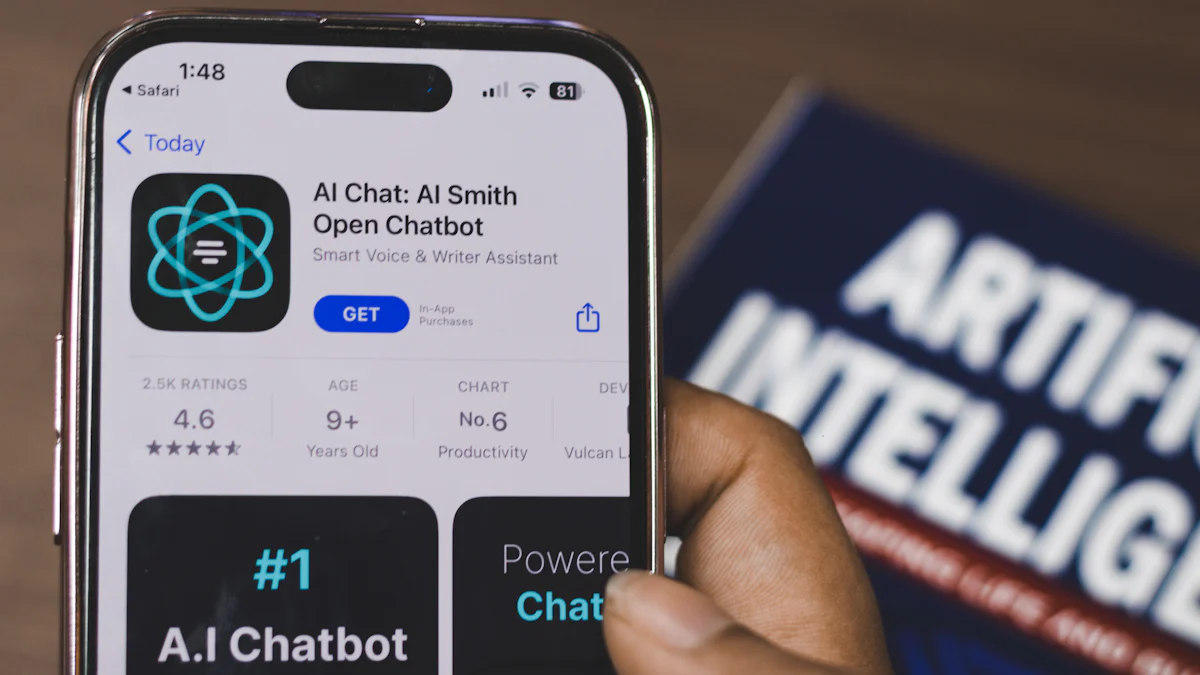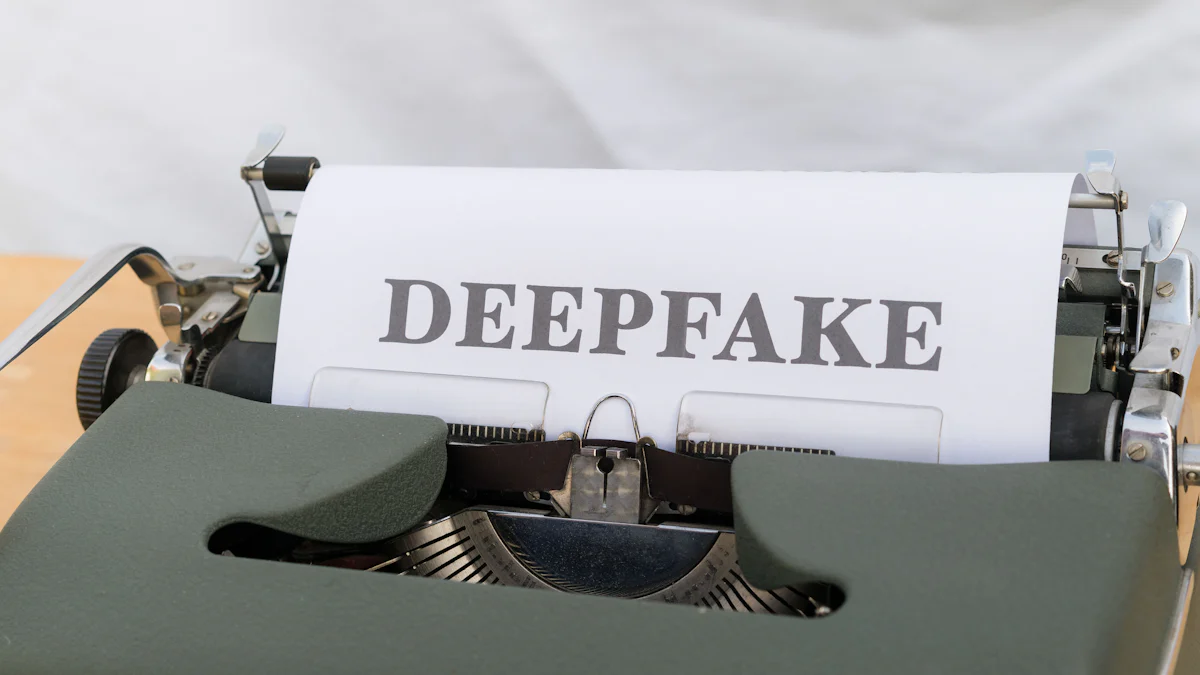AI-Generated Short Stories

Imagine a world where stories come to life with just a few clicks. AI story generators make this possible by using advanced algorithms to craft unique narratives based on your input. These tools have become essential in today's creative landscape. They offer fresh ideas and help you overcome writer's block. Whether you're a seasoned author or a budding storyteller, AI-generated short stories can inspire and enhance your creative journey. Dive into this innovative world and discover how technology reshapes storytelling.
Understanding AI Story Generators
AI-generated short stories are fascinating. They blend technology with creativity, offering a new way to craft narratives. Let's dive into how these story generators work and what makes them tick.
The Technology Behind AI Story Generators
AI story generators rely on cutting-edge technology. They use complex algorithms and vast datasets to create engaging stories.
Algorithms Used
Algorithms form the backbone of AI-generated short stories. These algorithms analyze patterns in existing stories. They learn from them and apply this knowledge to generate new narratives. You might wonder how they do it. Well, they break down stories into components like plot, characters, and settings. Then, they mix and match these elements to create something fresh and exciting.
Datasets Involved
Datasets play a crucial role in AI-generated short stories. They provide the raw material for the algorithms to work with. These datasets include a wide range of texts, from classic literature to modern novels. By studying these texts, AI learns the nuances of storytelling. It understands different genres, styles, and themes. This knowledge helps it generate stories that resonate with readers.
How AI Generates Stories
Creating AI-generated short stories involves a fascinating process. It's like watching a master chef whip up a gourmet dish from scratch.
Process Overview
The process begins with your input. You provide a prompt or a few keywords. The AI then gets to work. It analyzes your input and searches its database for relevant information. Next, it constructs a story outline. It decides on the plot, characters, and setting. Finally, it fills in the details, crafting a complete narrative. The result? A unique story tailored to your vision.
Examples of Generated Stories
AI-generated short stories can surprise you with their creativity. For instance, you might input a prompt about a futuristic city. The AI could generate a story about a young inventor who discovers a hidden world beneath the city streets. Or, you might provide a keyword like "adventure." The AI could spin a tale about a daring explorer on a quest for a lost treasure. These examples show the limitless possibilities of AI-generated short stories.
Benefits of AI Story Generators
AI-generated short stories offer a treasure trove of benefits for writers like you. They can spark creativity, boost productivity, and make storytelling more accessible. Let's explore how these tools can transform your writing experience.
Overcoming Writer's Block
Writer's block can feel like a daunting wall. But AI-generated short stories can help you break through it.
Providing Creative Inspiration
Imagine staring at a blank page, unsure of where to start. AI story generators can provide the spark you need. They offer fresh ideas and unique perspectives. You input a simple prompt, and the AI crafts a story outline or even a complete narrative. This process can ignite your imagination and lead you down new creative paths.
Enhancing Productivity
Time is precious, especially when you're writing. AI-generated short stories can enhance your productivity. They quickly generate story ideas, allowing you to focus on refining and expanding them. You spend less time brainstorming and more time writing. This efficiency can lead to a more satisfying and productive writing session.
Accessibility and Usability
AI-generated short stories aren't just for tech-savvy individuals. They're designed with accessibility and usability in mind.
User-Friendly Platforms
You don't need to be a tech expert to use AI story generators. Many platforms offer intuitive interfaces that guide you through the process. You simply enter your ideas, and the AI does the heavy lifting. This user-friendly approach makes storytelling accessible to everyone, regardless of their technical skills.
Cost-Effectiveness
Writing tools can be expensive, but AI-generated short stories offer a cost-effective solution. Many platforms provide free or affordable options. You can experiment with different story ideas without breaking the bank. This affordability makes it easier for you to explore your creativity and develop your writing skills.
AI-generated short stories open up a world of possibilities. They help you overcome writer's block, boost productivity, and make storytelling accessible to all. Whether you're a seasoned writer or just starting, these tools can enhance your creative journey.
Drawbacks of AI Story Generators
AI story generators offer many benefits, but they also come with some drawbacks. It's important to consider these challenges as you explore the world of AI-generated short stories.
Risk of Homogenized Storytelling
AI story generators can sometimes lead to a lack of diversity in storytelling. Let's dive into why this happens.
Lack of Originality
AI relies on existing data to create new stories. It learns from patterns and structures found in countless texts. While this can produce coherent narratives, it may also result in stories that feel familiar or predictable. You might notice that AI-generated stories often lack the unique voice or perspective that human writers bring to their work. This can make the stories feel less original and more like variations of existing tales.
Repetitive Themes
AI story generators can also fall into the trap of repetitive themes. Since they draw from a vast pool of existing stories, they might recycle common tropes or plotlines. You could find yourself reading different stories that share similar themes or character arcs. This repetition can make it challenging to create truly innovative or groundbreaking narratives.
Ethical Considerations
The use of AI in storytelling raises important ethical questions. Let's explore some of these concerns.
Authorship and Ownership
When AI generates a story, who owns it? This question of authorship and ownership can be complex. You might input the initial idea, but the AI crafts the narrative. This blurs the lines of creative ownership. It's essential to consider how credit and rights should be distributed when using AI-generated content.
Impact on Human Writers
AI story generators can impact human writers in various ways. On one hand, they provide valuable tools for overcoming writer's block and enhancing productivity. On the other hand, they might pose a threat to traditional writing jobs. As AI becomes more prevalent, you might wonder about its effect on the demand for human creativity. It's crucial to balance the benefits of AI with the need to support and nurture human talent in the creative industry.
AI story generators offer exciting possibilities, but they also present challenges. By understanding these drawbacks, you can make informed decisions about how to incorporate AI into your storytelling journey.
Platforms Offering AI Story Generation

AI-generated short stories have become more accessible thanks to various platforms. These platforms offer unique features that cater to different needs. Let's explore what they bring to the table.
Comparison of Features
When choosing a platform for AI-generated short stories, you should consider usability and customization options. These factors can greatly impact your experience.
Usability
You want a platform that's easy to navigate. User-friendly interfaces make the process of generating stories smooth and enjoyable. Look for platforms that guide you step-by-step. They should allow you to input your ideas effortlessly. This ease of use ensures you spend more time creating and less time figuring out how to use the tool.
Customization Options
Customization is key when crafting AI-generated short stories. Some platforms let you tweak various elements of your story. You might adjust the tone, style, or even the length of the narrative. This flexibility allows you to tailor stories to your specific vision. It ensures the final product aligns with your creative goals.
Popular Platforms
Several platforms stand out in the realm of AI-generated short stories. They offer distinct features that cater to different preferences.
Squibler
Squibler is a popular choice for many writers. It provides a seamless experience for generating AI-generated short stories. You can easily input your prompts and watch as the platform crafts a narrative. Squibler also offers various templates and tools to enhance your storytelling. It's a great option if you're looking for a straightforward and efficient way to create stories.
Canva
Canva, known for its design capabilities, also offers AI-generated short stories. It combines visual elements with storytelling, allowing you to create engaging narratives. Canva's platform is intuitive, making it easy for you to experiment with different story ideas. You can customize your stories with images and graphics, adding a unique touch to your creations.
Exploring these platforms can open up new possibilities for your storytelling journey. Whether you prioritize usability or customization, there's a platform that fits your needs. Dive into the world of AI-generated short stories and discover how these tools can enhance your creative process.
Broader Implications of AI in Storytelling

AI-generated short stories are not just about creating narratives. They have a broader impact on how we think about creativity and the future of writing. Let's explore these implications and see how they might change the way you approach storytelling.
Impact on Creativity
AI-generated short stories are reshaping the creative landscape. They offer new ways to think about storytelling and open up exciting possibilities for writers like you.
Redefining Creative Processes
AI-generated short stories challenge traditional creative processes. You no longer need to rely solely on your imagination. AI can provide fresh ideas and unique perspectives. This technology encourages you to think outside the box. It pushes you to explore new themes and styles. By collaborating with AI, you can redefine what it means to be creative. You might find yourself experimenting with story structures or exploring genres you hadn't considered before.
New Opportunities for Writers
AI-generated short stories create new opportunities for writers. They make storytelling more accessible to everyone. You don't need years of experience to craft engaging narratives. AI can help you develop your skills and build confidence in your writing. It also opens doors to new markets and audiences. You can reach readers who are interested in innovative and tech-driven stories. This technology empowers you to share your voice with the world in ways that were not possible before.
Future of Writing
The future of writing looks bright with AI-generated short stories. They offer a glimpse into how storytelling might evolve and integrate with traditional methods.
Integration with Traditional Writing
AI-generated short stories can complement traditional writing. You can use AI as a tool to enhance your creative process. It can help you brainstorm ideas, develop characters, or refine plots. This integration allows you to combine the best of both worlds. You maintain your unique voice while benefiting from AI's capabilities. This collaboration can lead to richer and more diverse narratives.
Evolution of Storytelling
AI-generated short stories are driving the evolution of storytelling. They introduce new formats and styles that challenge conventional norms. You might explore interactive narratives or stories that adapt to reader preferences. This evolution encourages you to think about storytelling in dynamic and innovative ways. It invites you to experiment and push the boundaries of what stories can be.
AI-generated short stories are more than just a tool. They are a catalyst for change in the creative world. By embracing this technology, you can unlock new possibilities and shape the future of storytelling.
AI plays a significant role in storytelling today. It offers new tools and perspectives for writers like you. As you explore AI-generated stories, consider forming your own opinions. Think about how this technology fits into your creative process. The future of AI in writing looks promising. It could redefine how stories are crafted and shared. Embrace these changes and see where they take you on your storytelling journey.
See Also
Inspiring Fresh Story Ideas with Generative AI
Utilizing AI for Crafting Character Backgrounds
Crafting Film Scripts Using Generative AI
